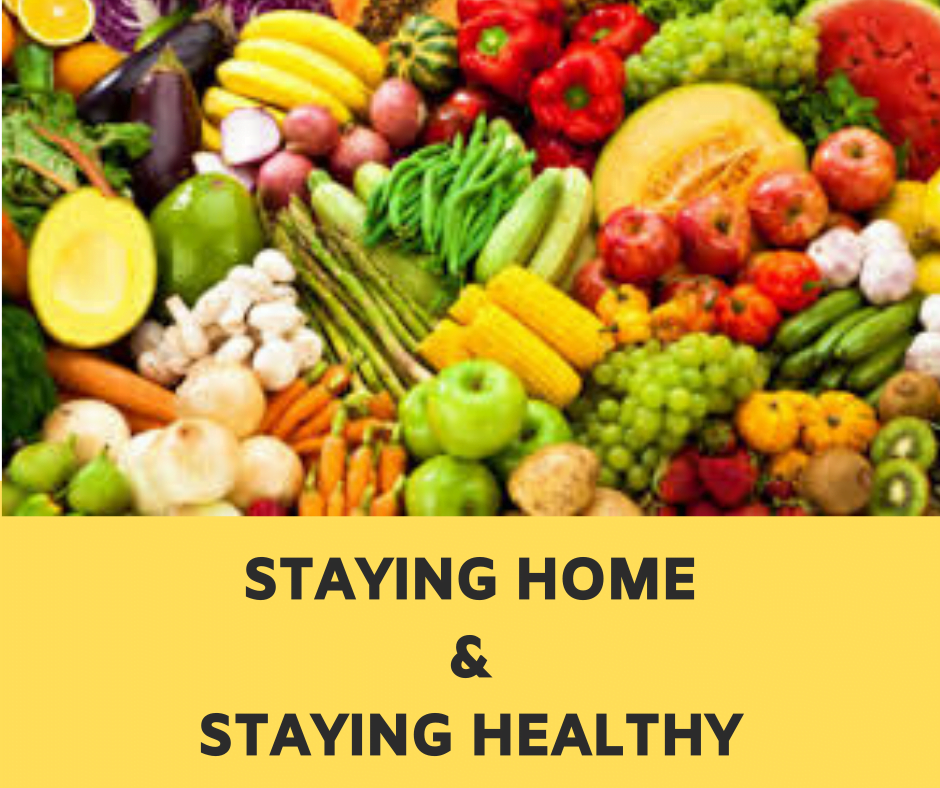Strengthen your body through food
Right now we are living through strange and turbulent times as we watch a world that has been hit in its immunity blind spot. We can’t ensure full health but we can give our bodily defenses a fighting chance — and the battle starts in the kitchen.
Improve your immune system
At any time — but particularly when we face a global health crisis — it’s important to take care of ourselves by eating a varied diet and giving our bodies the full nutritional profile they desire. While this can sound overwhelming, it’s as simple as balancing your plate and the combinations are endless.
Aim for each plate to consist of 50% fruit or vegetables (variety is key), 25% carbohydrate (ideally wholegrain) and 25% protein (as lean as possible). But don’t rush to the shops to find the biggest plate you can, the British Nutrition Foundation has a guide on portions and measures in fistfuls and thumbs — very handy.
Eat for your immune system

White blood cells are essential in order for us to produce antibodies that can combat viruses — like Covid-19. To ramp up your immune system and increase the activity of your white blood cells in particular, seek out foods which are rich in beta-carotene, an antioxidant like:
- Sweet potatoes
- Green leafy veg
- Mangoes
- Apricots
- Carrots
- Pumpkins
Spot bad habits and change them
Last week the University of South Carolina presented research that forecasts a sharp rise in addiction following the Covid-19 pandemic. While it’s normal to eat when we are bored or stressed, we might be particularly vulnerable to emotional eating while the outside world showers us with bad news on a daily basis.
Track your dietary habits
Eating hearty, nutritionally rich meals will help to prevent you from craving high-sugar food (which leads to inflammation) but if you are at your wits end with your fridge-raiding habits — you can start a food journal. Tracking your dietary habits and writing down cues for certain behaviours can help you to stop any self-sabotage in its tracks.
Turmeric
Prices of this inflammation-busting superhero shot up in India as the nation stockpiled ahead of a Covid-19 lockdown —such is its reputation for staving off illness. The beauty of turmeric is you can add it to practically anything, roasted vegetables, scrambled egg, porridge and coffee are just the tip of the aromatic iceberg.
Vitamin D3
A brand new study has found a link between Vitamin D consumption and a lower risk of contracting Covid-19. Vitamin D is essential for our immune systems and low levels of the vitamin are linked to an increased risk of a number of respiratory diseases and a decrease in lung function. For this reason, it is essential we get our daily dose – you can find Vitamin D in foods like:
- Soy milk
- Fortified cereal
- Tuna
- Cheese
You can also consider taking a Vitamin D3 supplement. It is recommended not to exceed 600 to 800 IU per day, unless diagnosed with a Vitamin D deficiency, which should be treated by a doctor.
Get outside for your daily activity
The body creates Vitamin D from direct sunlight on the skin when outdoors, so make sure to spend your 1 hour of daily activity for outside exercise and get as much Vitamin D as possible.
Eat “happy foods”
While we’re carving out a new normal, it’s important for our immune systems that we remain mentally fit and well. When we are stressed or unhappy, a hormone called corticosteroid suppresses our immune systems — making us more susceptible to falling ill. Add foods which can help boost your levels of the happy hormone serotonin into your diet, such as:
- Fish
- Nuts
- Dark green vegetables
- Seeds
- Oats
- Yogurt
- Eggs
- Poultry
Try something plant-based
Meat can be hard to come by at the moment but a lot of plant-based staples are easily made with jars lurking in your cupboard. Chickpea curry, lentil bolognese, black bean stew and vegetable shepherd’s pie, are all rich in anti-inflammatory and immunity-boosting compounds — and they make a perfect lunch for the following day.
Limit alcohol for respiratory health
Drinking affects our immune system by reducing the number of virus-busting white blood cells in our bodies. There have also been studies that show that drinking compromises our macrophages — the cells which act as the first line of defense in our body — recognising and engulfing any unwelcome visitors (or viruses). It’s important to enjoy the little things during these uncertain times but remember to give your white blood cells a chance to recuperate by saving your tipple for a treat.
Pepper: the unsung hero
As we painstakingly avoid the salt shaker on every table, it can be easy to forget about it’s peppery counterpart. But pepper is packed with piperine, an antioxidant which fights free radicals and inflammation, all while making it easier for our bodies to absorb nutrients from the foods we eat — a process known as bioenhancement. Piperine, in particular, optimises vitamins A, B6, C, selenium and our virus-fighting superstar beta-carotene! A dash of pepper is enough as it works simultaneously as we eat — so a little bit will do the trick.
Sources:
Stay fit and healthy with Bluecoats
Now that you’ve got your diet sorted, continuing to regularly exercise is another great way to keep your body feeling tip top and will also help to reduce feelings of stress and anxiety.
Head on over to our YouTube Channel where our expert trainers have been putting together a range of easy workouts you can do at home, suitable for a range of abilities.
If you have any concerns or would like to speak to a member of our team, then please email us on info@bluecoatsports.co.uk. Don’t forget to keep an eye on our Facebook, Twitter and Instagram channels for the latest updates.